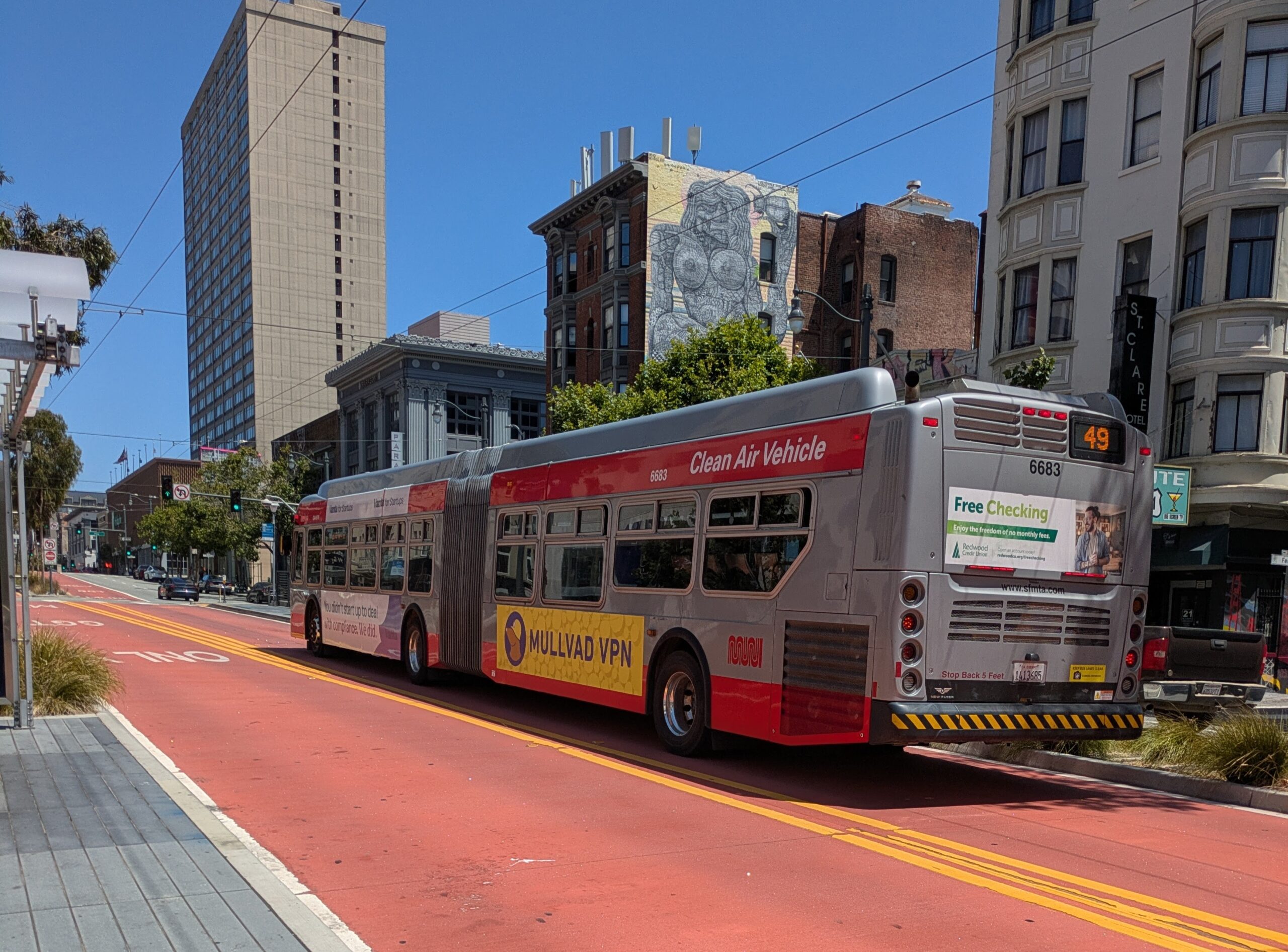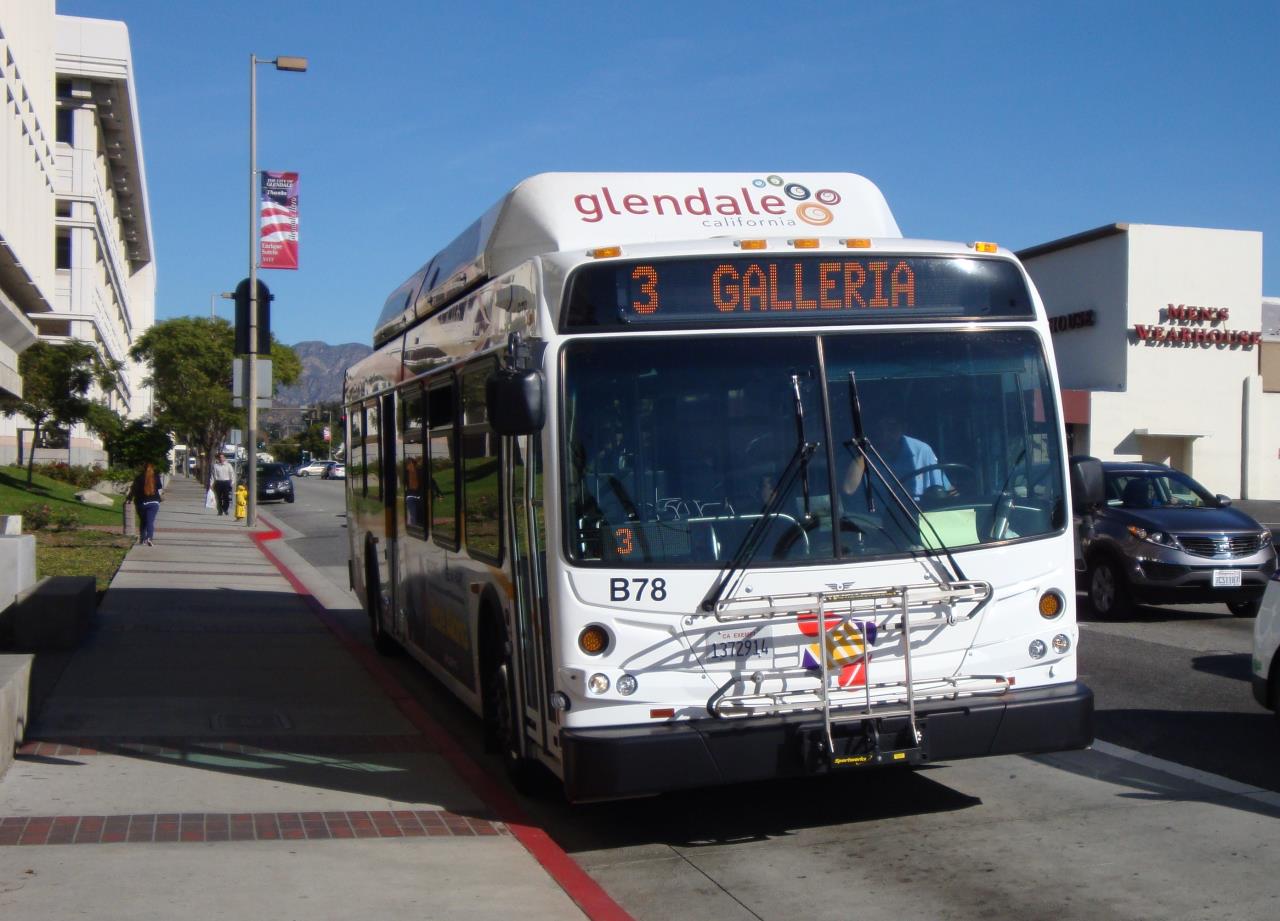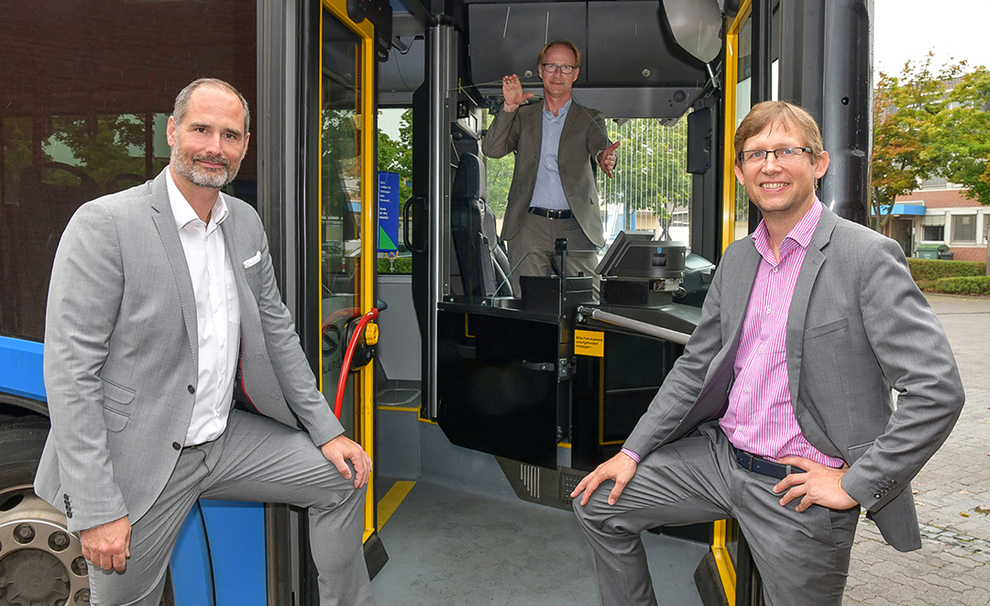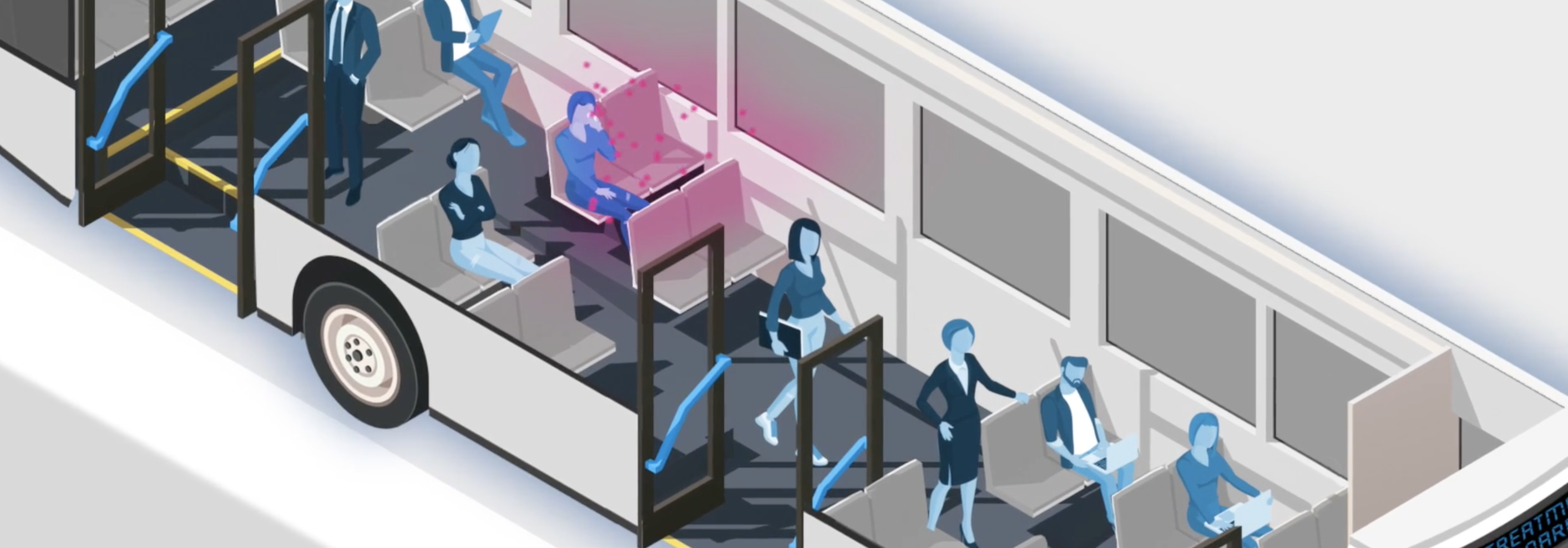Daimler Buses: A Greater Exchange of Air with Active Filters Increases Safety in Buses
- TU Berlin: a fast exchange of air provides for low concentrations of aerosols
- 99 percent of aerosols are actively filtered out
- Sensor-controlled disinfectant dispensers prevent the transmission of germs
In its fight against Covid-19 and for the protection of bus occupants, Daimler Buses is relying on a high fresh air content, a fast exchange of air and anti-viral high-performance particle filters in its vehicles. The effectiveness of these protective measures has also been confirmed by the research report issued by the Hermann Rietschel Institute at the Technical University of Berlin in a study.
Head of the Institute, Prof. Dr. Martin Kriegel, said:The situation in touring coaches with a fast exchange of air is not particularly critical for passengers when compared with other daily situations – as long as the AHA rules are maintained (AHA stands for Abstand, Hygiene and Alltagsmaske - Distance, Hygiene and Face mask). There is, therefore, very little risk for a tour group, even if one of its members is infected.
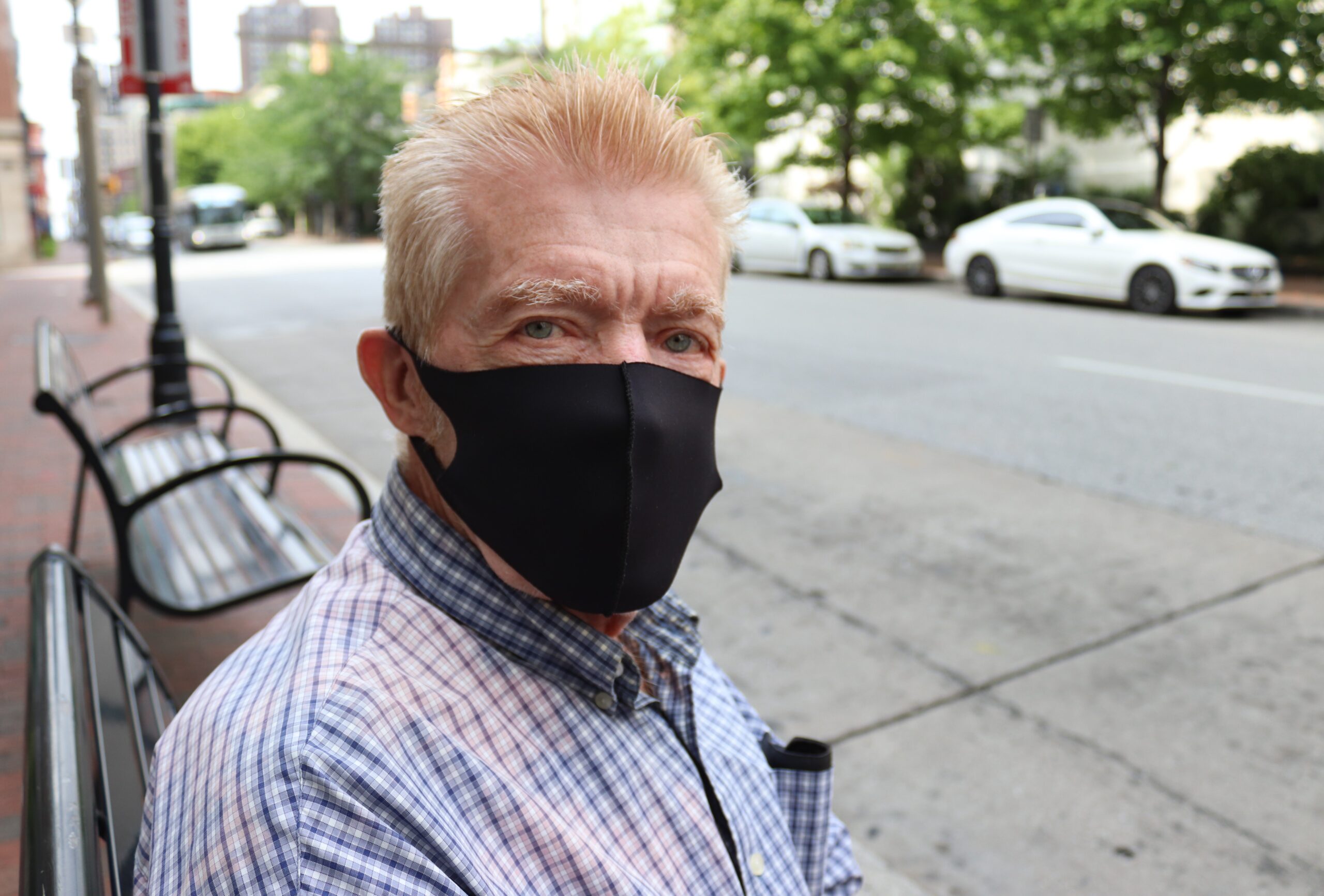
Head of Development at Daimler Buses, Gustav Tuschen, said:The study by the Technical University of Berlin showed, that the measures in our buses, such as the use of active filters with anti-viral coating, can make bus tourism safer. That is why we are clearing this filter technology and the findings from the study for competitors.
Ventilation via the Vehicle Floor
The fully automatic air conditioning systems, installed as standard in the buses, make a considerable contribution towards increasing the safety of the occupants in Mercedes-Benz and Setra buses. This is because they reduce the risk of infection onboard by exchanging air fast.
Thanks to ventilation via the footwells, air is continuously exchanged in high-floor vehicles and high-deck touring coaches and in turn this protects occupants from an increased concentration of aerosols.
Critical Aerosol Values Are Not Reached
New active filters significantly increase the efficiency of the air conditioning systems in the Mercedes-Benz and Setra buses. These multi-layer, progressively designed high-performance particle filters additionally feature an anti-viral functional layer which filters the finest aerosols. Proof of these anti-viral characteristics in accordance with ISO 18184 are provided by physical tests and micro-biological examinations.
The new active filters are used for the roof-mounted air conditioning systems, for the air filters and also for the front climate control boxes. With these features up to 99 percent of aerosols are filtered out.
Prof. Dr. Martin Kriegel, said:Thanks to the use of high-performance particle filters the concentration is also very low in air-recirculation mode. Even after four hours in the bus, the critical value of 3000 aerosols, considered to lead to infection, is not achieved.
The new high-performance particle filters with an anti-viral functional layer are available for all touring buses including double-deckers and all high-floor inter-city vehicles.
By the end of the year it will be possible to fit all city buses and low-entry buses of both brands with the new active filters. Vehicles fitted with these features will be identifiable by a highly-visible sticker in the entrance area.
Range for the Fresh Air Supply Can Be Extended
At common outside temperatures between 8 and 26 degrees Celsius, the air conditioning system uses the maximum level of fresh air (between 80 and 100 percent). In this way air can be exchanged continuously and quickly, every one to two minutes.
Both at low and high temperatures, the air conditioning systems work in so-called mixed-air mode. Here, the renewal of fresh air in the interior occurs every four minutes.
Upon request from the customer, the maximum fresh air content of the air conditioning systems in the Mercedes-Benz Tourismo, Setra ComfortClass 500, TopClass 500 and S 531 DT double-decker coach series as well as in all inter-city vehicles can be increased by as much as 33 or 40 percent by additionally extending the outside temperature range for maximum fresh air supply upwards and downwards.
An Even Greater Fresh Air Supply in the Setra Topclass
In the Setra touring coaches of the TopClass series, fresh air is filtered via additional roof boxes for the integrated air conditioning system above the La Linea design elements. As a result, in these vehicles the air can by exchanged every minute or up to every three minutes.
On the Setra S 531 DT double-decker bus, the extract air is controlled in the upper deck via two ventilation boxes and the steps from the lower deck. In the lower deck the bus is ventilated using grills in the cockpit and floor. In all city and low-entry vehicles the doors open regularly at bus stops to provide additional ventilation.
Driver Protection Doors for All Buses of the Mercedes-Benz and Setra Brands
Bus drivers have now been given extensive protection from the pandemic. To prevent droplet infections, Daimler Buses has developed professional protective doors for drivers made of safety glass and top-quality polycarbonate plastic for city and inter-city buses as well as touring coaches from both the Mercedes-Benz and Setra brands. These protective doors for drivers are available for new vehicles and as a retrofit solution.
As is the case in every other situation, hand hygiene is very important when travelling in a bus. That is why Daimler Buses is now offering contact-free disinfectant dispensers which are fitted on the door mechanisms. These contact-free dispensers prevent users’ hands coming into contact with the actual device. Thus transmission of germs via the dispenser is not possible.
This article was originally published by Daimler.












